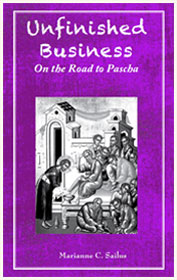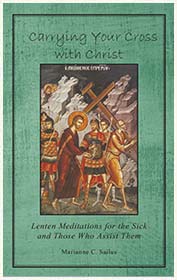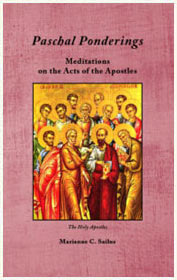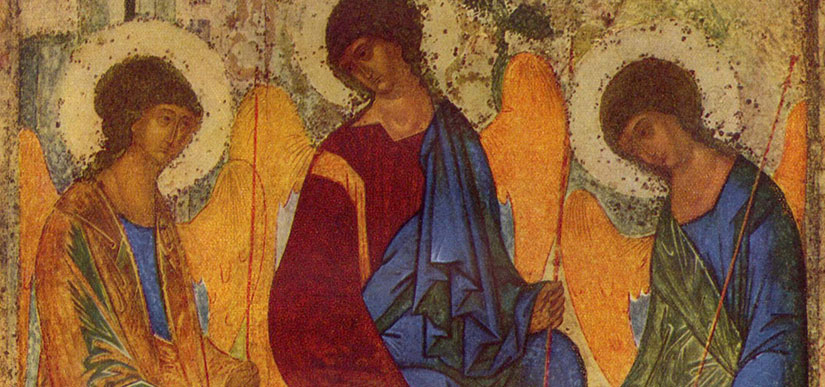
Daily Meditations

Daily Meditations

Daily Meditations

Marian Meditations

Advent Meditations

Lenten Meditations

Lenten Meditations

Meditations

Meditations


Life is a progression of seconds, minutes, hours, days, months, and years. Often people begin projects, but do not follow them through to their conclusion.
This book addresses the most solemn season of the Christian year - Lent, or as it is known in the Christian East - Great Lent. It also extends through the entirety of Great and Holy Week and culminates on the Feast of feasts - Pascha, or Easter.
Most Christians enter into this holy season with wonderful intentions and plans to prayerfully follow throughout the forty days. However, not every person follows through with these plans to embrace the most important aspects of the season.
The book is divided into the weeks of the Lenten seasons, and a different theme is covered in each week: Forgiveness, Prayer, Fasting, Compassion, Almsgiving, Silence. The theme of the final week - Great and Holy Week - is love.
The author, a Ukrainian Catholic (Byzantine tradition), uses the Scriptural texts as outlined by the Byzantine Church for the forty days of the Great Fast, Great and Holy Week, and Pascha. However, as these meditations do not relate to the Scriptural texts, if the reader chooses to use daily scriptural readings from another tradition, it will not change the progression of the book.
Jack Figel, Publisher of Eastern Christian Publications of Fairfax, Virginia, has added nine color icons for each week as another source of meditation.
This book is available from our website by clicking the ADD TO CART button above, or Eastern Christian Publications at its website: http://www.ecpubs.com. The cost is $15.00. A digital version is also available for iOS or Adobe Reader.
Third Sunday of the Great Fast
What is Compassion?
Scriptures: Hebrews 4:14 - 5:6; Mark 8:34 - 9:1
This week, The Week of the Holy Cross, seems like a good time to stop and consider the virtue of compassion. Compassion is a well-known, and perhaps even over-used (or incorrectly used) word, so what exactly does it mean?
From its Latin roots, compassion means, "with passion." Christ is the Epitome of compassion, as He is Compassion Incarnate! His passion for our souls was so great that it lead Him to accept His glorious and life-giving Passion on the Cross for the redemption of those same sinful souls! It was with compassion that He healed the sick, fed the hungry, forgave even the most hardened sinners, and raised the dead back to life. There was nothing in His life that Christ did without compassion in its truest definition.
Since the focus of this Great Lenten journal is "unfinished business," I felt it was a time for me to examine myself and see how I might become a more compassionate person. Even the good things that we do, if not done with compassion, are not truly the acceptable sacrifice to God that we intended.
St. Paul writes, "As the chosen of God, then, the holy people whom he loves, you are to be clothed in heartfelt compassion, in generosity and humility, gentleness and patience. Bear with one another; forgive each other if one of you has a complaint against another. The Lord has forgiven you; now you must do the same. Over all these clothes, put on love, the perfect bond. And may the peace of Christ reign in your hearts, because it is for this that you were called together in one body. Always be thankful" (Colossians 3:12-16). "Heartfelt compassion" is giving our all to another, knowing that in serving and forgiving one another, we are doing these things to the Christ Who dwells within each and every human being.
The modern saint - and I will prematurely call her that - who most typifies the true meaning of compassion for me is Blessed Teresa of Calcutta. She writes, "Let us love our neighbours and so fulfill God's desire that we become carriers of His love and compassion" (The Joy in Loving, p. 191). The word that strikes me in this meditation is the word "carriers." I thought of this word in a medical sense. A mosquito, for example, is a carrier of disease to the creature it bites. In this case, the carrier brings death, not life. We are called to become "carriers" of compassion. Then, whomever's life we may be invited to enter may become "infected" with this same compassion, and then that individual may go forth and extend compassion to yet others.
Becoming compassionate is not effortless. It is easier to ignore the needs of another, or to take care of them out of obligation, rather than with compassion. The Cross of Christ, held before us in our churches this week, reminds us of His compassion for us, and so drives us to become more compassionate in our dealings with our brothers and sisters - also made in His image and likeness.
Dear Lord, help us to be a more compassionate children of Your Father. Infect us with Your Divine Compassion, so that we may desire to give our best to others, and in turn, perhaps invite them to act compassionately towards others they meet. If this will occur, peace can reign in our homes, our workplaces, our neighborhoods, and even throughout the world. Amen.